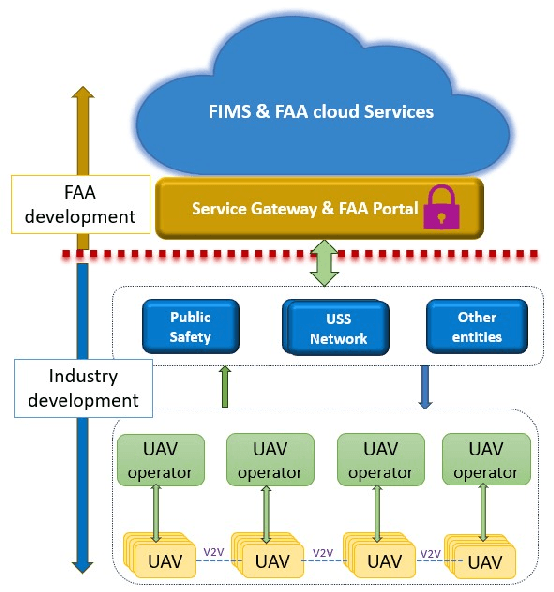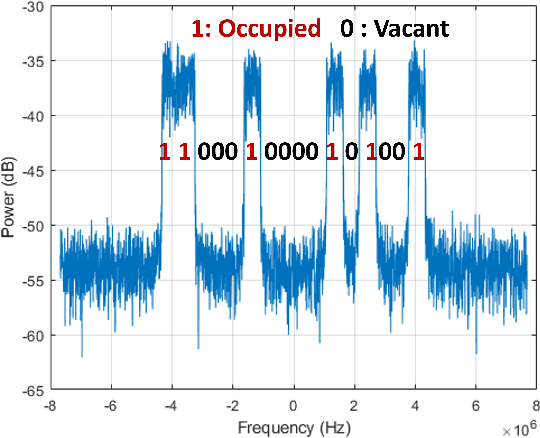Federated Learning-based Collaborative Wideband Spectrum Sensing and Scheduling for UAVs in UTM Systems
Paper and Code
Jun 03, 2024



In this paper, we propose a data-driven framework for collaborative wideband spectrum sensing and scheduling for networked unmanned aerial vehicles (UAVs), which act as the secondary users (SUs) to opportunistically utilize detected "spectrum holes". Our overall framework consists of three main stages. Firstly, in the model training stage, we explore dataset generation in a multi-cell environment and training a machine learning (ML) model using the federated learning (FL) architecture. Unlike the existing studies on FL for wireless that presume datasets are readily available for training, we propose a novel architecture that directly integrates wireless dataset generation, which involves capturing I/Q samples from over-the-air signals in a multi-cell environment, into the FL training process. Secondly, in the collaborative spectrum inference stage, we propose a collaborative spectrum fusion strategy that is compatible with the unmanned aircraft system traffic management (UTM) ecosystem. Finally, in the spectrum scheduling stage, we leverage reinforcement learning (RL) solutions to dynamically allocate the detected spectrum holes to the secondary users. To evaluate the proposed methods, we establish a comprehensive simulation framework that generates a near-realistic synthetic dataset using MATLAB LTE toolbox by incorporating base-station~(BS) locations in a chosen area of interest, performing ray-tracing, and emulating the primary users channel usage in terms of I/Q samples. This evaluation methodology provides a flexible framework to generate large spectrum datasets that could be used for developing ML/AI-based spectrum management solutions for aerial devices.
 Add to Chrome
Add to Chrome Add to Firefox
Add to Firefox Add to Edge
Add to Edge